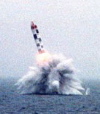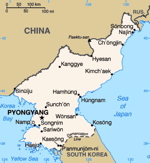
The second failed test launch of Russia’s experimental Bulava (R-30 SS-NX-30) submarine-launched ballistic missile (SLBM) in as many months has renewed doubts about the viability of the country’s strategic nuclear deterrent, and in turn increased fears that Russian policy makers might adopt “hair-trigger” operational procedures to guarantee that their nuclear forces could survive and respond to a first strike. The Bulava is a three-staged missile designed to carry up to six individually targeted nuclear warheads for a range of approximately 8,000-10,000 kilometers. The two back-to-back failures have effectively suspended the test program. Previously, the missile had been scheduled to enter […]


